Introduction
Satellite phones, often called sat phones, are special communication devices that connect directly to satellites instead of cell towers. They are designed for remote travel, emergency use, disaster zones, and outdoor adventures where regular mobile or cell phone networks cannot reach.
What is a Satellite Phone?
A satellite phone is a portable handset that communicates with orbiting satellites instead of ground-based cellular towers. This allows it to work virtually anywhere, including remote locations like deserts, oceans, mountains, and disaster-hit regions. It connects to other cellular phones or the general telephone network through a radio link via these Earth-orbiting satellites.
Key Uses of Sat Phone
Satellite phones or Sat Phones are particularly useful in emergencies, especially in remote areas where landline or cellular networks are unavailable.
Emergency Response: Responders can use satellite phones for critical communication while coordinating response and recovery efforts in these challenging locations.
Disaster Relief: They are invaluable in areas affected by natural disasters like earthquakes or severe weather, where existing communication networks may be disrupted or overloaded.
Therefore, satellite phones play a crucial role in maintaining command and control functions when conventional communication systems are unavailable during emergencies, but they are illegal in some countries without valid permission.
How It Differs From a Cell Phone
| Feature | Satellite Phone | Cell Phone |
|---|---|---|
| Network | Satellite | Cellular |
| Coverage | Global | Limited to tower range |
| Best Use | Emergency, remote travel | Daily communication |
| Cost | Higher | Lower |
Also read – Top 5 Private Space Companies in India
How Satellite Phones Work
A Satellite phones connect to Earth-orbiting satellites that act as communication relays. It connects you to landlines, cellular networks, and other satellite phones by using satellites orbiting the Earth.
Here’s the simple process:
- Sending: The satellite phone sends your signal (voice or text) up to the nearest orbiting satellite.
- Routing (The Call):
- The satellite verifies the user through an Earth-based gateway station.
- The signal is sent down to the nearest gateway.
- If you’re calling a regular phone, the signal is then passed to the Public Switched Telephone Network (PSTN).
- If you’re calling another satellite phone, the satellite can route the call directly, often improving the quality.
- Antenna: Satellite phones typically use an omnidirectional or directional antenna and must have a clear view of the sky to get service.
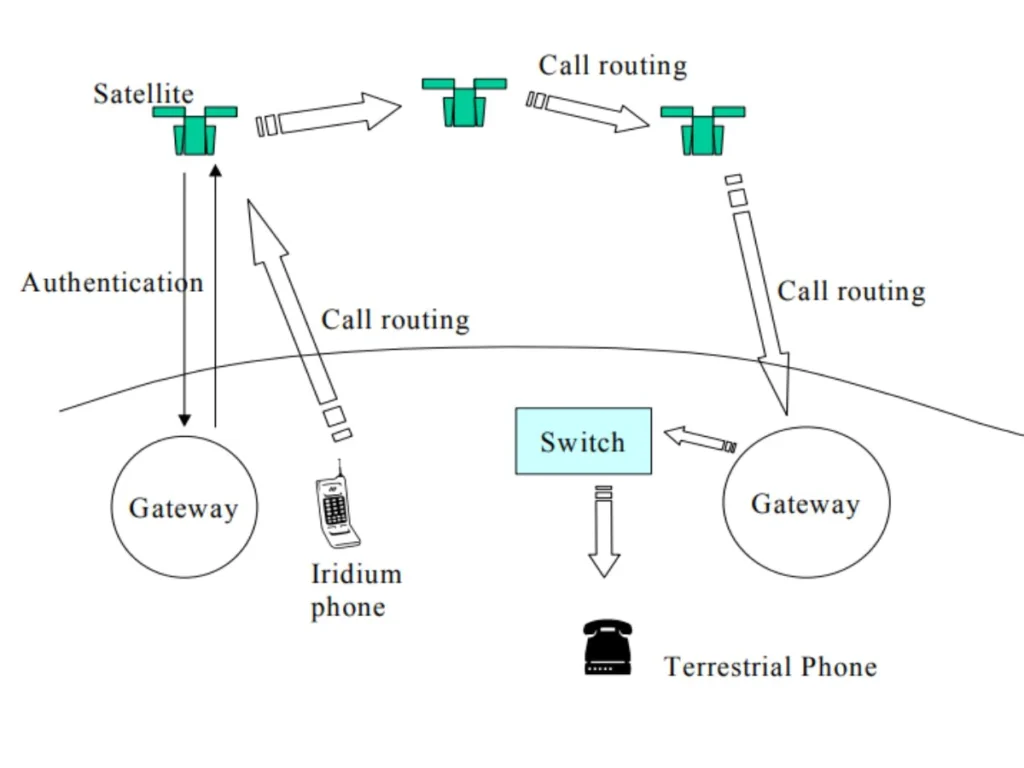
Types of Satellites Used for Sat Phones
Satellite phones use two main types of satellites:
Geosynchronous Equatorial Orbit (GEO) Satellites:
- Orbit very high (about 36,000 km).
- They remain stationary over the same spot on Earth, providing wide, nearly constant coverage with only a few satellites.
- Drawback: The long distance the signal travels can cause a noticeable delay in calls.
Low-Earth Orbit (LEO) Satellites:
- Orbit much lower (about 780 to 1,500 km).
- They are always moving relative to the ground.
- To ensure you always have coverage (since one satellite passes overhead in only a few minutes), a large network of many satellites (e.g., around 60) is required.
Why They Work Everywhere
Because the signal reaches space, you are not dependent on local network availability.
Also read – Top 15 Space Agencies in the World for 2024
Different Satellite Phone Service Providers
The major service providers of voice and data services via satellite networks include :
1. Iridium
- Only provider with 100% global coverage
- Best for ships, rescue teams, military
2. Inmarsat
- Strong coverage in Asia, Europe, Africa
- Used for aviation, maritime, and emergency response
3. Thuraya
- Popular in the Middle East & Asia
- Supports satellite + GSM dual mode
4. Globalstar
- Affordable plans
- Good for North America
How Much Is a Satellite Phone?
The cost depends on model and service.
Average Satellite Handset Cost
- Basic sat phone: ₹40,000 – ₹60,000
- Premium rugged phones: ₹90,000 – ₹1,50,000
- Portable satellite communicator: ₹20,000 – ₹30,000
Cheapest Satellite Phones (2025)
- Thuraya XT Lite
- IsatPhone 2 (Inmarsat)
- Iridium 9555 (Older model)
Best Satellite Phones to Buy
1. Iridium Extreme 9575
- Most rugged
- Global coverage
- Reliable emergency button
2. Inmarsat IsatPhone 2
- Affordable
- Long battery backup
- Good for travelers
3. Thuraya XT Lite
- Budget-friendly
- Works in satellite + GSM mode
Where to Buy Satellite Phones (Stores)
- Official Iridium / Inmarsat / Thuraya partners
- Online satellite phone stores
- Adventure gear stores
- Marine communication shops
How To Use a Satellite Phone ?
To make a call using a satellite phone to either a landline or another satellite phone, follow these steps:
- Remove the satellite phone from its casing.
- Step outdoors to ensure a clear view of the sky.
- Extend the antenna towards the sky.
- Press and hold the power button for five seconds.
- Wait for the green LED network indicator to illuminate.
- Dial the area code, followed by the desired phone number.
- Press the green button to initiate the call.
The same steps apply when making a call to a satellite phone.
To receive a call : on a satellite phone, ensure that the phone is turned on. When an incoming call is received, the satellite phone will emit a sound or vibrate, and the LED network indicator will turn red.
To answer the call : extend the antenna and select the “Accept” button on the left side of the phone. To end the call, press the red button on the right side.
Satellite Phone vs Smartphone
Can Android Phones Use Satellite?
Yes. Modern devices (like iPhone 14/15 and some Android phones) support satellite SOS, but they are not full satellite phones.
 Key Difference
Key Difference
- Smartphones can send emergency messages via satellite.
- Satellite phones allow full calling & texting anywhere.
Rules for Using Satellite Phones in India
The use of satellite phones in India is highly restricted and requires prior official permission. Their use is illegal in some countries without such permission.
Key Restrictions
- Prior Permission is Mandatory: Carrying or using any satellite phone requires specific approval or a No Objection Certificate (NOC) from the Department of Telecommunications (DoT), Government of India.
- Illegal/Unauthorized Models: The use of specific models, such as Thuraya and Iridium satellite phones, is widely and strictly declared as illegal in India without valid permission.
- Declaration at Customs: If you are carrying a satellite phone (even in your baggage), you must declare it to Customs upon arrival and present the necessary official permission.
Consequences of Non-Compliance
Unauthorized possession or use of a satellite phone in India is a serious offense:
- Seizure: Law enforcement agencies will seize any unauthorized devices.
- Prosecution: Individuals found with unauthorized sets are liable to be prosecuted under Indian laws, such as the Indian Wireless Telegraphy Act, 1933.
Permitted Use Cases
- Satellite phones are typically allowed only under these conditions:
- When accompanied by specific approval/NOC from the Department of Telecommunications (DoT).
- When provided by BSNL (Bharat Sanchar Nigam Limited) under their license for operating satellite-based services using gateways installed in India.
Visitors and tourists are strongly advised not to bring or use satellite phones into India without obtaining explicit, prior permission from the relevant authorities.
Countries with Satellite Phone Restrictions
Many countries ban or heavily restrict the use of satellite phones, often due to national security concerns. Always contact the country’s embassy before traveling.
Complete Bans/High Risk:
- Bangladesh: Possession is illegal and can lead to imprisonment.
- China: Illegal to possess without a special license (often considered suspicious).
- Cuba: Forbidden without a permit from the Ministry of Informatics and Communications. Possession can lead to arrest.
- North Korea: Complete ban; all electronic devices are subject to monitoring and search.
- Chad: Banned due to terrorist threats, and no permits are issued. Possession can lead to confiscation and arrest.
Strictly Restricted/Requires Permit:
- India: Heavily restricted and illegal. Only Inmarsat phones may be permitted, and only with prior approval (NOC) from the Department of Telecommunications (DoT). Thuraya and Iridium devices are often explicitly banned.
- Russia: Use is allowed, but requires advance approval and mandatory SIM card registration (active for six months) from Roskomnadzor.
- Libya: Restricted. Thuraya phones are banned (risk of espionage charges). The exact law is vague; check with the embassy.
- Myanmar: Restricted. While restrictions have eased, travelers must check the current rules with the embassy before entry.
- Nigeria: Restricted. Banned in Borno state, and the legality in the rest of the country is uncertain.
- Sri Lanka: Restricted. Requires a license from the Telecommunications Regulatory Commission, especially for journalists.
- Sudan: Restricted. Most electronics are restricted. Devices may be confiscated indefinitely for inspection; inquire about satellite phones when applying for a visa.
Conclusion
Satellite phones are more than just ways to talk to people; they can save lives. They are more expensive than smartphones, but they are more reliable when cell networks go down. A sat phone makes sure you’re never cut off, whether you’re travelling, getting ready for an emergency, or going to a remote area.
Frequently Asked Questions (FAQs)
This FAQ section is designed to provide quick and clear answers to the most common inquiries we receive. We encourage you to click on a question to find the information you need. If you can’t find an answer here, please don’t hesitate to visit our Contact Us page for further assistance.
Why are satellite phones illegal in some countries ?
Satellite phones are banned or illegal in some countries because they bypass local telecom networks, making it hard for governments to monitor communications, which can be a security concern.
How much is a satellite phone ?
Satellite phones typically cost between $500 and $1,500, with monthly service plans ranging from $50 to $200 depending on usage and provider.
What is a satellite phone ?
A satellite phone connects directly to satellites in orbit instead of ground-based cell towers, allowing communication in remote or disaster-affected areas where regular mobile networks don’t work.
How do satellite phones work ?
Satellite phones send signals to orbiting satellites, which relay the signal to ground stations connected to the regular phone network, enabling calls from almost anywhere on Earth.
Who are the satellite phone service provider?
Major providers include Iridium, Inmarsat, Globalstar, Thuraya, and Spot, each offering global or regional coverage.
Where is the satalite phone store?
Satellite phones are sold online by official providers and authorized resellers, as well as in specialty electronics stores in major cities.
Which is the cheapest satellite phone?
The cheapest satellite phone is often the Thuraya X5-Touch or the Inmarsat IsatPhone 2, with prices starting around $500–$600, depending on promotions and features.
Having any queries? – Do reach us at info@scivoyage.com

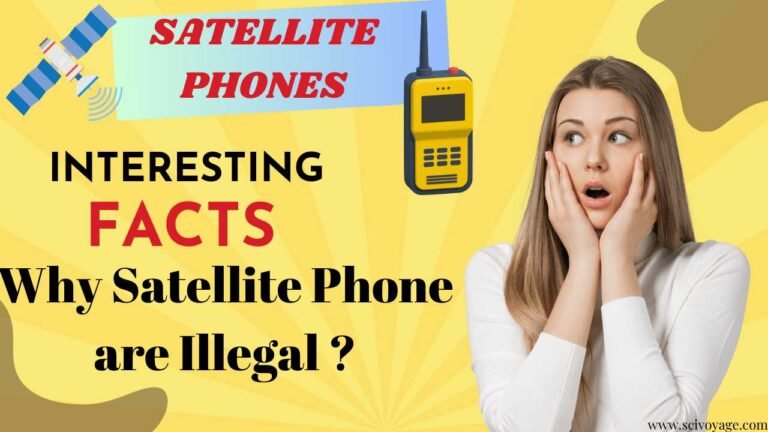
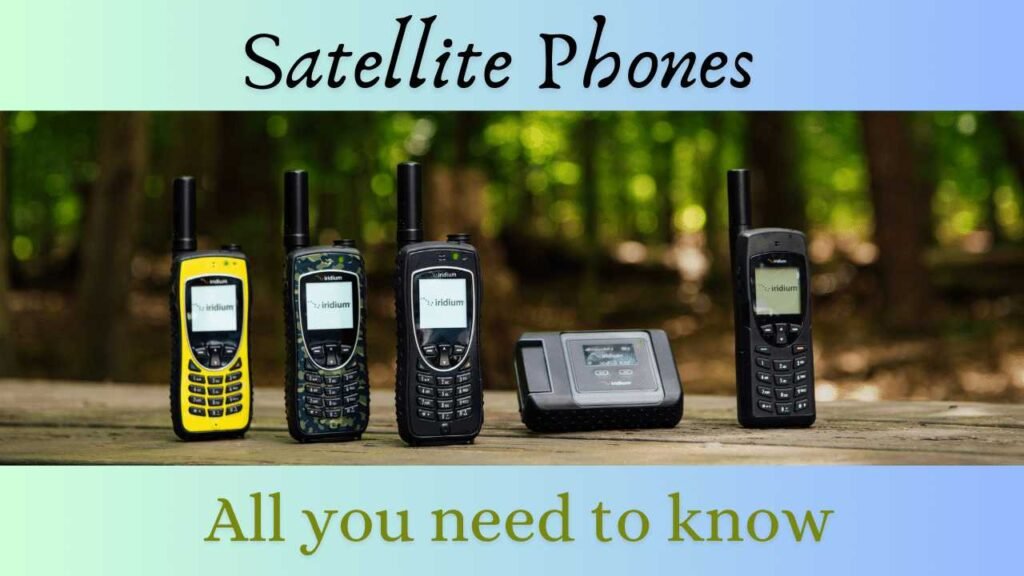
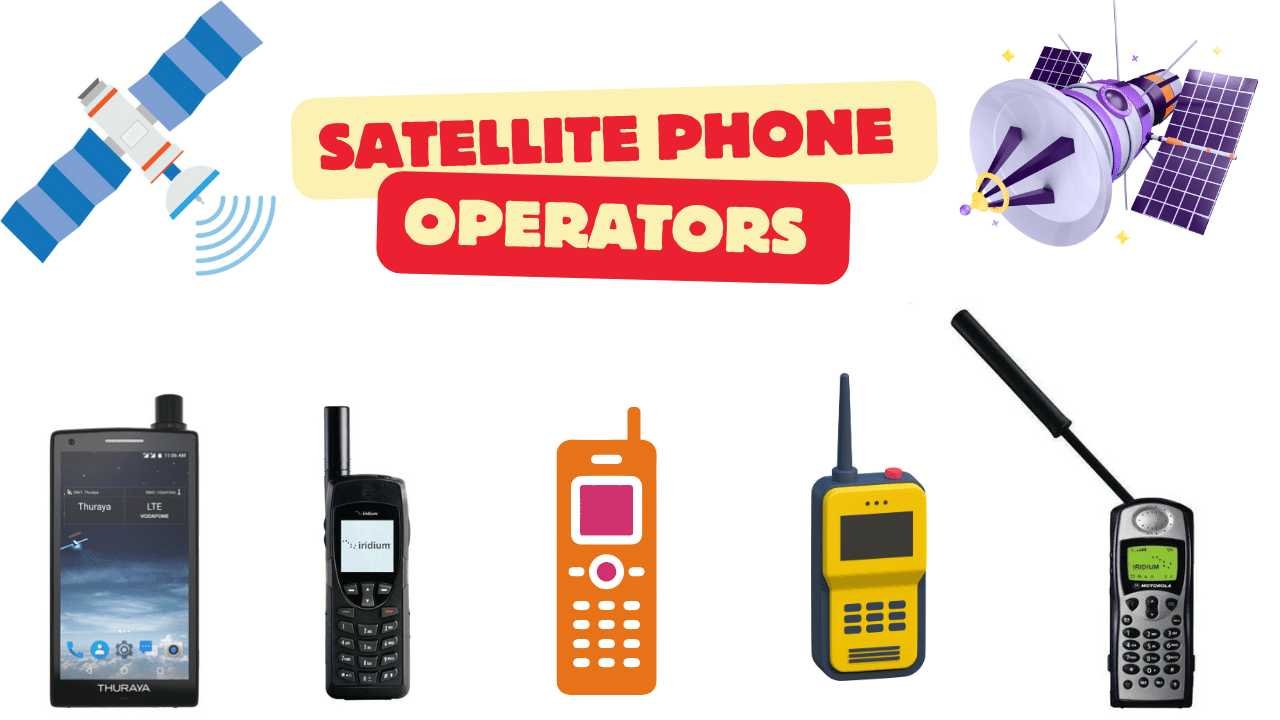
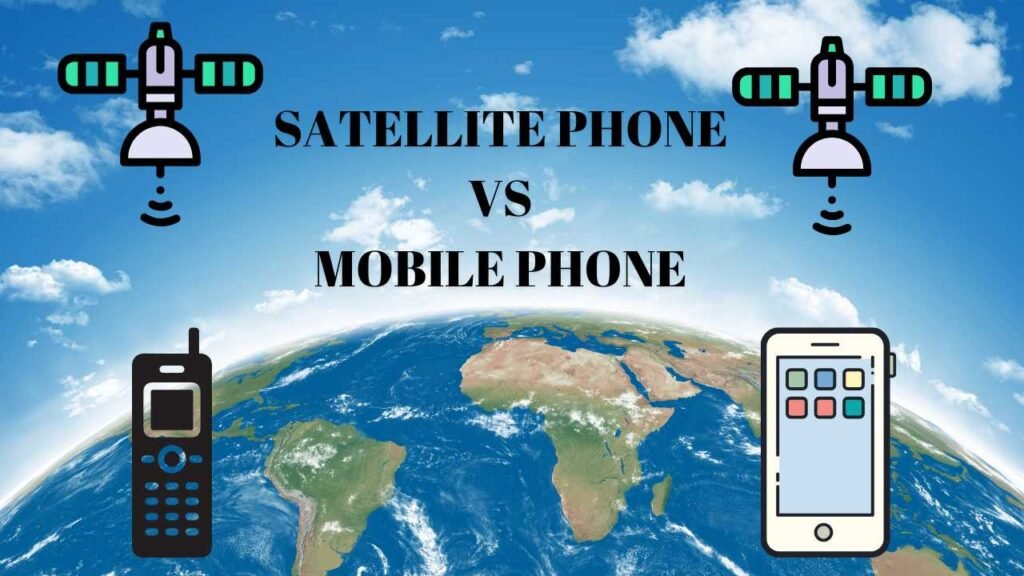 Key Difference
Key Difference


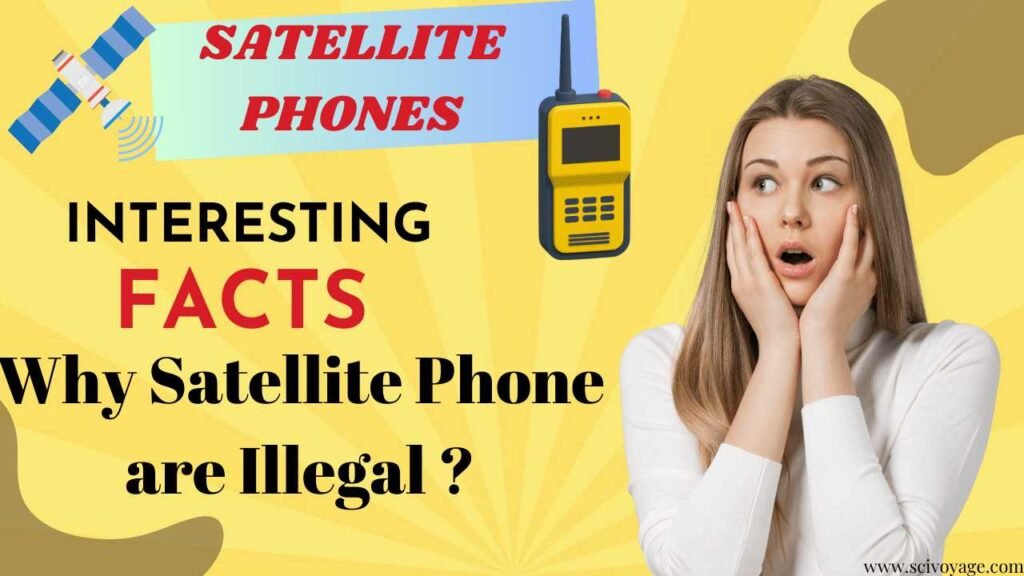

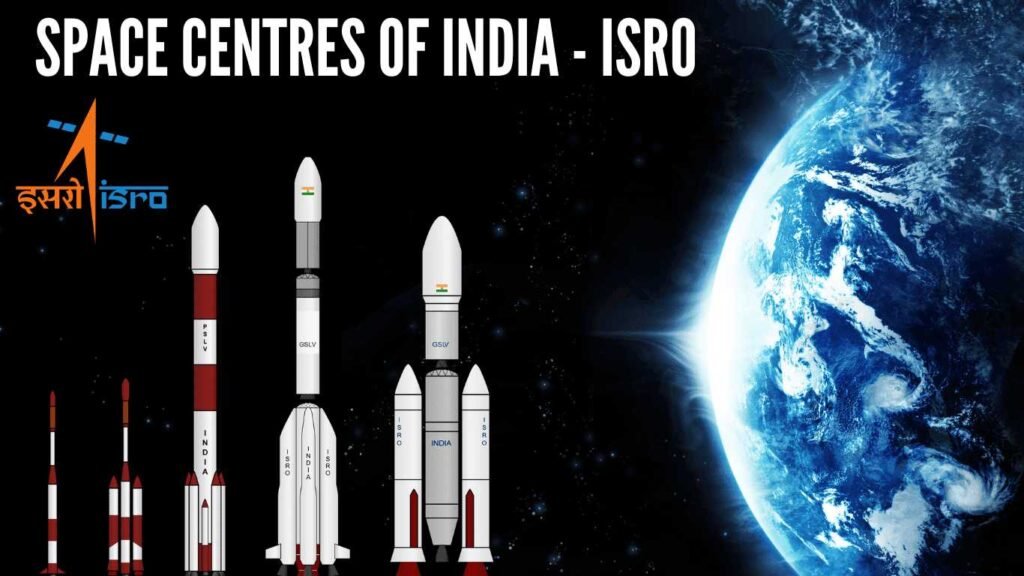

1 thought on “Why Are Satellite Phones Illegal in Some Countries”
Thank you, your article surprised me, there is such an excellent point of view. Thank you for sharing, I learned a lot.